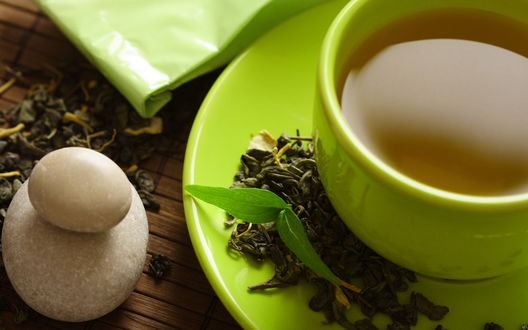Many of us can’t get through the day without a strong shot of dark, thick coffee. Ncall it a cappuccino, espresso or just a regular coffee, we would get a dose of caffeine that affects our central nervous system. It is still unclear whether long-term consumption of coffee would be detrimental or beneficial to our health. However, there’s still another source of caffeine that we may not aware of. Tea is often considered as a health drink and it contains some amount of caffeine. Tea is known for its medicinal properties. In fact, brewing and drinking tea are considered as an art form in some Asian cultures.
Many people already know that tea is good for them. A good tea is derived from the young leaves and buds of Camelia Sinensis, or the evergreen tea bush. It’s native to some sub-tropical and tropical areas in Asia. We could find six types of teas, white, greenm yellow, oolong, red and black teas. The type of tea is determined by the method of processing, such as firing and the length of fermentation of the buds and young leaves. In general, black tea is the most processed, while white tea is the least processed. Each type of tea provides different kinds of health benefits from stronger teeth to prevention to specific types of cancer.
There are reasons why tea is beneficial for our body. Tea contains about four thousand types of chemical compounds and many of them are known as polyphenols. These substances are defensive mechanism to protect tea plant against UV lights and a variety of diseases. These polyphenols are also known as flavonoids, which are antioxidants. They should be able to cleanse our body of free radicals that are based on nitrogen and oxygen. These highly reactive chemical substances could damage our body in cellular levels. They open the door to various illnesses, such as heart diseases and diabetes.
The aging process is also accelerated if free radicals continue to damage our body. Tea also contain catechins and tannins. These antioxidants are more effective than vitamin C and E, in terms of their antioxidative properties. It means that tea could provide us with proper anti-carcinogenic effects. We would less likely to avoid contracting colon, oral, stomach and skin cancers. According to studies, catechins can also reduce the risk of breast cancer. It is said that just a cup of black tea each day could reduce the incidence of lung cancer by about 50 percent.
Flavonoids could also prevent the occurrence of stroke and heart disease. When LDL or bad cholesterol is oxidized, it will become a cause of hypertension of atherosclerosis. It means that tea could enhance the performance of blood vessel and reduce blood lipids. Flavonoids also have strong antibacterial properties. By drinking tea properly, we should have enhanced immunity to a wide variety of bacteria. Tea could prevent oxidation and it could provide us with protection more than just a cup of coffee. Tea without sugar added contains no calories and it could become an excellent diet drink.

